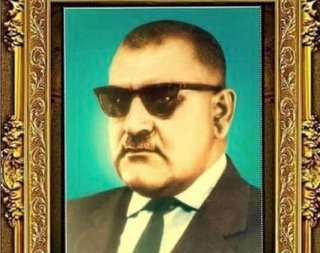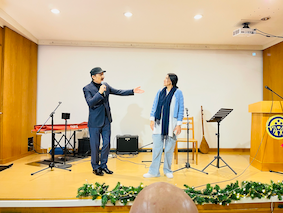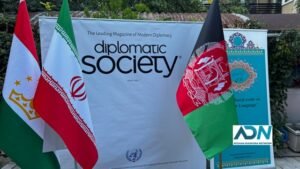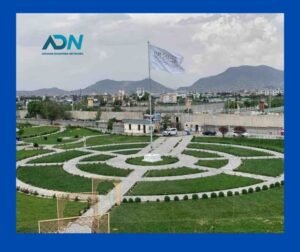Afghanistan Homegrown Philosopher

Screenshot
By Abdul Wakeel
In the mountainous district of Mohmand Dara, Nangarhar, where Afghanistan meets the linguistic crossroads of Central and South Asia, Seddiqullah Reshteen was born in 1919. From these humble origins emerged not just a scholar, but a guiding voice for the Pashtun intelligentsia. For over four decades, Reshteen has been at the forefront of a cultural and linguistic awakening—one that has shaped how Pashtuns understand themselves and their place in the world.
Known widely by his literary pseudonym Reshteen (meaning “bright” or “luminous” in Pashto), he is a name spoken with reverence among Afghan academics, poets, and language advocates. A professor, writer, and public intellectual, Reshteen has become a central figure in the Pashto literary and philosophical landscape. But unlike many public figures, his influence has grown not through spectacle or self-promotion, but through quiet, consistent dedication to the cause of Pashto language and culture.
Educated in literature and philosophy during a time of ideological and political flux in Afghanistan, Reshteen found in language a form of both identity and resistance. His academic career would later span decades, mostly spent teaching at Kabul University, where he mentored a generation of students now shaping Afghanistan’s literary and cultural institutions. His lectures—equal parts literary analysis, philosophical inquiry, and cultural commentary—are remembered for their depth and sincerity. For many, Reshteen was not just a professor, but a guide through the tangled questions of identity, belonging, and intellectual heritage.
Central to Reshteen’s life’s work is a profound belief in the significance of Pashto—not merely as a means of communication, but as a repository of memory, wisdom, and worldview. “A language,” he often says, “is not only what we speak—it is how we think, how we remember, and how we imagine.” For him, the preservation and promotion of Pashto are not acts of cultural nostalgia but essential steps toward intellectual sovereignty.
Reshteen’s literary output reflects this conviction. His essays, critiques, and philosophical writings delve into the moral and aesthetic dimensions of Pashto literature, often challenging both traditionalist and modernist tendencies. He refuses to reduce Pashtun culture to its tribal or martial past, instead championing its poetic, ethical, and philosophical richness. His writings explore indigenous concepts of honor (nang), hospitality (melmastia), and justice (adāl) not as relics, but as living values worthy of serious intellectual engagement.
What sets Reshteen apart from many of his contemporaries is his ability to straddle tradition and modernity. His thought is rooted in the cultural soil of Afghanistan, but he draws freely from global intellectual traditions. He invokes Plato as easily as Khushal Khan Khattak, pairing existential questions with folkloric wisdom. This dual fluency has allowed him to develop a distinctly Pashtun intellectual voice—one that is at once rooted and open, critical yet hopeful.
In addition to his academic and literary work, Reshteen is a vocal advocate for the institutional support of indigenous languages. He has consistently argued that the marginalization of Pashto in formal education, media, and public discourse is not merely a linguistic issue—it is a political and psychological one. A society, he warns, that sidelines its native language risks dislocating itself from its own history and values.
Despite these warnings, Reshteen remains fundamentally optimistic. In recent years, a quiet resurgence of Pashto literature, theater, and journalism has taken root—much of it inspired by the intellectual groundwork he and his peers have laid. New voices are emerging, not in opposition to tradition, but in conversation with it. In this, Reshteen sees hope. “The role of the intellectual,” he wrote in an essay, “is not to mourn what has been lost, but to light the way forward.”
His impact goes beyond the written word. Students, colleagues, and cultural workers alike speak of Reshteen not only as a scholar, but as a mentor—generous with his time, humble in his demeanor, and unwavering in his ethical standards. In an era where intellectual celebrity can often overshadow substance, Reshteen remains refreshingly grounded. He is rarely seen in the limelight, yet his ideas travel far.
Today, as Afghanistan endures yet another period of uncertainty, Reshteen’s voice feels more vital than ever. In a country where education has too often been interrupted by war, his commitment to scholarship serves as quiet defiance. Where many have chosen exile, he has chosen presence. Where others speak of decline, he speaks of possibility.
The story of Reshteen is not just the story of one man. It is the story of a people’s struggle to reclaim their narrative, their language, and their dignity through thought and expression. His life is proof that intellectual labor—often slow, often invisible—is nonetheless transformative. As his students and readers continue to build on his work, Reshteen’s brightness endures, not as a spotlight, but as a lamp passed hand to hand.
Afghan poet Wakeel Attock previously served as the director of culture for the eastern provinces of Laghman and Nooristan.
Note: The contents of the article are of sole responsibility of the author. Afghan Diaspora Network will not be responsible for any inaccurate or incorrect statement in the articles.











